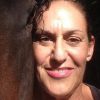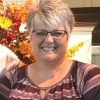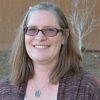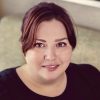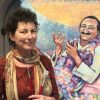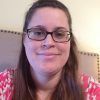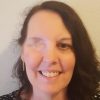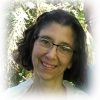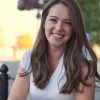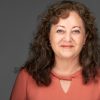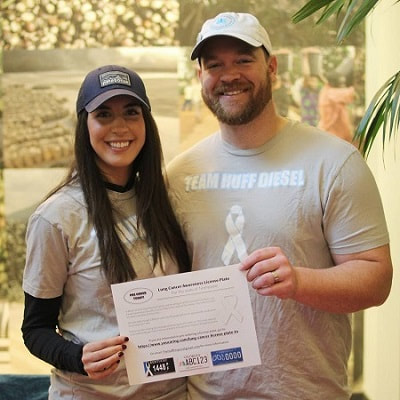
Conversations:
Stephen, welcome to CONVERSATIONS. I know you are a very young man with lung cancer. Much too young. Take us back to before your diagnosis. How were you feeling?
Stephen Huff, the Huff Project:
Hello Doug, I’m feeling very good currently. Prior to my diagnosis, I was just 28yrs old at the time, and I had what most would consider a naggy cough. Being a former college and professional baseball player, I always took excellent care of myself. So this cough, was ignored and placed on the backburner. In 2016, I then began having shortness of breath. But again, due to lack of exercise and allergies etc., I placed my health last and did not get it checked out.
It wasn’t until January 2017, when I began building fluid in my lungs. This is what ultimately sent me to the physician. I was unable to sleep at night, and coughing all day long. So I was very asymptomatic, until ultimately the months before my diagnosis.
Conversations:
And you were diagnosed with lung cancer? Stage 4? You are a non smoker, right? You must have been flabbergasted . . . apoplectic. Describe how you felt when you were assaulted with that news?
Stephen Huff, the Huff Project:
That’s correct. I was diagnosed with stage IV non-small lung cancer. I remember vividly telling the physician there must have been a mistake. I mean to receive a cancer diagnosis is one thing, but lung cancer was totally foreign to me. I never smoked, on the contrary. I was an athlete, and I spent my entire life exercising and taking excellent care of my body.
Conversations:
I know as a non smoker, I would have been incredulous if I got lung cancer especially in my 20s. But to that point, lung cancer is NOT just for smokers as unfortunately you found out. Tell us about the genetic mutation you have? And maybe talk generally about the various mutations: ALK, EGFR, Ros 1, etc.
Stephen Huff, the Huff Project:
That’s correct, as I unfortunately learned, lung cancer is no longer considered a “smokers disease.” I know it sounds arbitrary, but if you have lungs, then you can get lung cancer. Physicians are actually scratching their heads because in the last 20 years, there has been a huge increase lung cancer diagnosis in non-smokers that have quit, as well as never smokers. The only other causes that are currently know are asbestos, radon, and environmental pollutants.
After my diagnosis, I learned quickly that my tumors express a very specific mutation referred to as the Anaplastic Lymphoma Kinase mutation or commonly referred to as “ALK Positive.” This mutation, along with other various mutations such as ROS1, EGFR, etc are actually treatable with a very specific target therapy. Research has shown that these mutations can be singled out and attacked using TKI therapy which is much less harsh than traditional treatments like chemo, radiation, etc. but with much greater results.
Conversations:
Yes. It is widely accepted that targeted therapy is much more successful than chemo. Although, the results seem to vary. The first ALK drug, Xalkori, goes back how many years now? 5? And there now competitive ALK drugs available? What does the treatment landscape look like for ALKIES today?
Stephen Huff, the Huff Project:
That’s correct. Xalkori (Crizotinib) was considered the first generation line of treatment for the ALK mutation, however there are at least two (possibly three) approved generational drugs. Alectinib was approved by the FDA in November of 2017, thankfully it was prior to my diagnosis. Alectinib (Alecsensa) is showing to have a much higher response then first generation drug Xalkori, and is also crossing the blood brain barrier with high efficiency. There is also Brigatinib, and Lorlatinib which are considered third and fourth generation ALK drugs.
I’m currently on Alectinib, and have been since diagnosis.
Conversations:
It’s a blessing. Treatment development is life saving, obviously. How have you been doing on Alectinib? What is your prognosis now? Can you be converted from terminal to chronic like women with metastatic breast cancer who are her2+ and having been receiving Herceptin for 10+ years? What are you doctors saying to you, Stephen Huff, the Huff Project?
Stephen Huff, the Huff Project:
I’ve been doing very well. My oncologist (Dr. Leora Horn) has indicated that I’ve had a complete response. Essentially, my tumor reduction was considerable, and right now I’m currently living in stable disease. That’s a good question about terminal status, my initial reaction is the don’t have enough data for Alectinib to make that ruling, however Genentech has indicated that the progression-free survival is climbing and hasn’t show it’s peak yet.
When I tell someone about my current status, I use the phrase “living with lung cancer, and managing it as a chronic disease.”
Conversations:
You must have a strong spirit to battle this disease. And you have your youth, your athletic background to fortify you. Many people who get in the ring with cancer are in their 60s or 70s and have less resources to answer the bell.
Stephen Huff:
Although I’m only two years into this arduous journey, it’s already taught me several things about myself. I certainly considered myself strong, but I know now what truly makes one strong. I absolutely wouldn’t call cancer a gift (as I would never wish upon anyone else) but uniquely, it has been a small blessing in my life because it’s taught my the importance of serving others and given me a stronger appreciation for life.
Conversations:
Beautifully articulated. Thank you, Stephen.
Stephen Huff, the Huff Project:
You are very welcome.
Conversations:
I want to circle back to the stigma of smoking because that continues to be an important issue. When someone tells others they have lung cancer. The first question is – “Did you smoke” As if to say, “You brought this on yourself.” As talked about, lung cancer is not just for smokers. How are you building awareness about this issue? Fighting the stigma but also supporting your smoking brethren? I find some non smokers contribute to this issue because they are always heralding, “But I didn’t smoke” and this creates a wedge between smokers and non smokers. And now, with targeted therapy, this wedge is even deeper. Because if you were a smoker diagnosed stage 4 3 years ago, the likelihood that you’d be speaking to CONVERSATIONS today, would be quite small. Tragically so.
Stephen Huff, the Huff Project:
I completely agree. I’ve seen this division first hand, as many of my fellow lung cancer warriors are in a similar situation to myself. I actually fell into a similar line of thinking early after my diagnosis. I would assume there is this division in the lung cancer community because non-smokers do not see themselves as having the same “type” of cancer as smoker would. I even heard the phrase “non-smokers lung cancer” being used in various social media forums. I believe if we’re to truly make a change in the lung cancer community, then we must unite as one. There should not be “two-groups” of lung cancer patients, there should only be one. Nobody deserves to receive a cancer diagnosis, regardless of past habits.
Conversations:
Exactly. Let’s segue into the Huff Project and talk about how and why you created that non profit . . .
Stephen Huff, the Huff Project:
I’d love to, shortly after my diagnosis, I was driving home and noticed a breast cancer awareness license plate. Once home, I researched that my home state of Tennessee has a license plate program for nonprofits. There is currently no lung cancer awareness license plate in the state of Tennessee, so my wife Emily tried starting one. In order to hold the money safely and securely, we started a nonprofit in January of 2018. Shortly after, we decided to try and do more than just a license plate, and raise as much money possible for lung cancer research.
In our first year of existence, we raised nearly $90,000 for lung cancer in our home community of middle Tennessee.
Conversations:
That’s so inspiring. You have two other initiatives. a golf event and a song writers event. Tell CONVERSATIONS about those and please share your Huff Project link so folks can find you.
Stephen Huff, the Huff Project:
That’s correct. Between three inaugural fundraising initiatives, we operated and administered a highly successful Songwriter Night, ‘Chip-in’ to Beat Lung Cancer Golf Scramble, along with attempting to govern the production for the first ever lung cancer awareness specialty license plate, in our home state of Tennessee.
Our golf tournament takes place on Friday, Oct 25, and our songwriter’s night will take place on Friday, Nov 22nd. Both will take place in Nashville, TN and the proceeds will benefit all things lung cancer in our community.
Conversations:
Here’s the link to the Huff Project: https://www.thehuffproject.org/#/
I want to close by asking about your new career. You’re now a high school teacher in Franklin? What courses do you teach? How is that reinvention working . . . how do you find the time to create this new life, new foundation while facing down cancer?
Stephen Huff, the Huff Project:
At school, I’ve loved being able to spark imagination in our youth, and it’s given me a purpose each day. Out of the classroom, my diagnosis has turned me into an educator of the general public on the warning signs of my disease. Breaking the stigma is vital to me and education is the first step.
Despite all of the treatments I’ve taken to fight my disease, teaching has been the most therapeutic.
I’m convinced that one of the highest human dignities we have is to provide the next generation with educational tools for success. That’s why I’m an educator and will continue to teach despite what obstacles I face in the future, and happy to see all of your work to educate our communities.
Conversations:
Thanks for talking to CONVERSATIONS today, Stephen. You’re very inspirational. Paradigm of how someone can marshal their resources to find cancer or any other disease or any foe that they might face.
Stephen Huff, the Huff Project:
Thank you for our conversation today, it’s truly a pleasure to chat with you, Doug. Thank you for sharing my story and helping make a difference in the cancer community.


